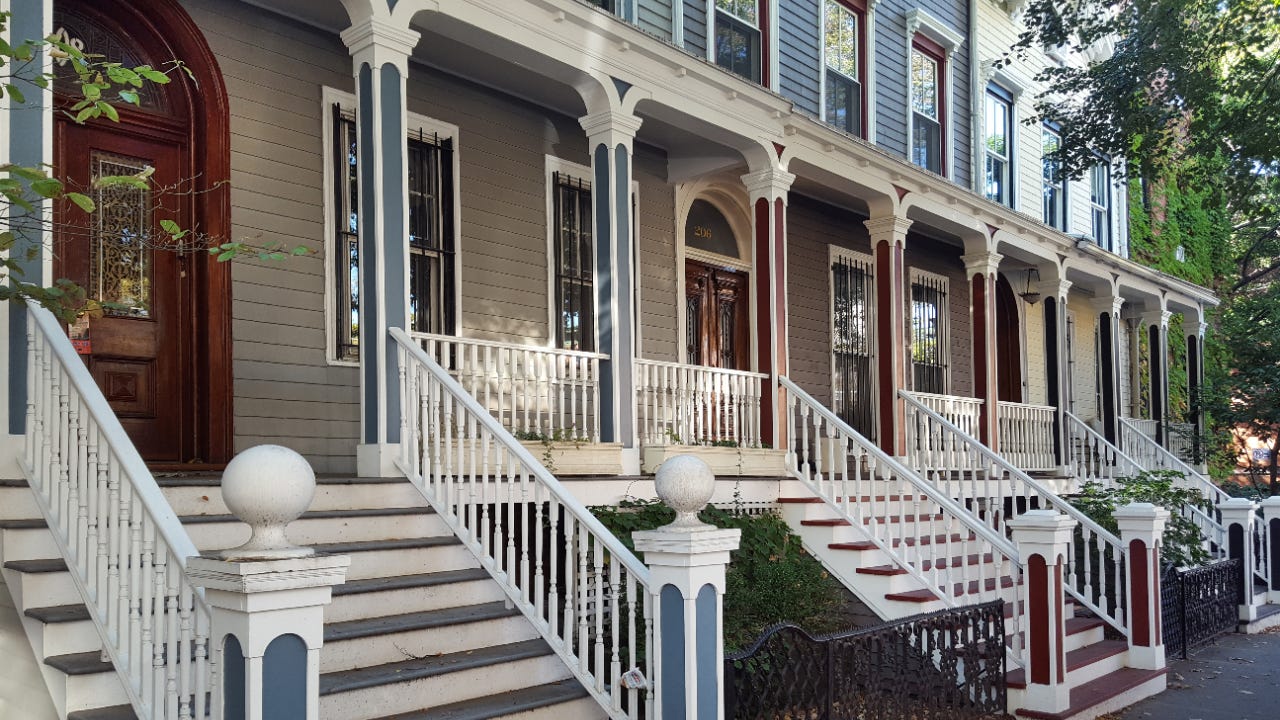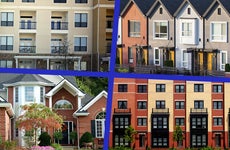How to choose a good neighborhood (it may be important than the house)

The Bankrate promise
At Bankrate we strive to help you make smarter financial decisions. While we adhere to strict , this post may contain references to products from our partners. Here's an explanation for .
When Dan Sondhelm moved from an apartment building where residents mostly ignored trash in the halls to a single-family home in Alexandria, Virginia, he didn’t expect the local neighborhood watch to take their duties quite so seriously.
“It was really organized,” he says. “Those in charge for the week would clear still-on-the-driveway newspapers and still-on-the-street garbage cans, among other things, during the twice-a-day drive around the block.”
They’d also pay close attention to homes whose residents were on vacation, making sure that nothing was amiss at those properties. Nearly 20 years later, Sondhelm lives in the same house, and the neighborhood watch is still going strong. “There’s a feeling that you’re all in this together and you all look out for each other,” he says of his neighborhood.
When it comes to choosing a good neighborhood to live in, not all surprises are so positive. There’s a reason why real estate agents like to remind house hunters that they’re not only buying a house, they’re also buying a neighborhood.
Whether you’re a first-time homebuyer or a seasoned pro, here’s everything you need to know about what to look for in a neighborhood.
How to find a good neighborhood
It’s easy to get caught up in looking for a home that checks off everything on your wish list, but real estate experts say it’s more important to pay close attention to the neighborhood. After all, a house can be updated and fixed, but you can’t change its location and the vibe of the community — or your neighbors.
When searching for a good neighborhood, it boils down to one thing: research. And lots of it. Your real estate agent will be a good resource for pointing out key amenities and learning about things like homeowners’ association rules, but you can’t rely on them for some kinds of specific information.
“Realtors have to be very careful not to say anything that might steer people into one neighborhood or another,” says Ronald Humes, a Realtor with HomeSelect in Lexington, Kentucky. The federal Fair Housing Act, aimed at preventing housing discrimination, bars real estate professionals from discussing the racial or financial demographics of a community with their clients.
That said, you can find plenty of information on your own online. Websites like Niche and NeighborhoodScout are a great starting place for data about a specific area, including crime rates, income levels, demographics, and school info.
Still wondering how to find a good neighborhood? Here are other factors to consider:
Safety
For many homebuyers, safety is top of mind when choosing a good neighborhood. An area with a low crime rate is not only safer, but can help keep property values afloat in the years to come.
How to check
Local law-enforcement agencies typically track crime statistics, so that’s a good place to start. You also can visit websites such as CrimeReports and SpotCrime, and you might also run the address on the National Sex Offender Registry to see if there are sex offenders living nearby. In addition, drive past the property at various times of day and night to check on traffic and noise.
School district
Even if you don’t have children yourself, buying a house in a community with good schools can be a smart investment, because future buyers may have children. “Schools have a lot to do with the resale value of a home,” says Ken Pozek, a Realtor with Keller Williams’s Pozek Group Realty in Orlando, Florida. “Even if the schools aren’t A-rated or B-rated, you want to know that going in when you make the decision to buy.”
Many schools have had a rough go of it during the pandemic, with test scores falling drastically, according to the Brookings Institute. In addition to ratings, you may want to look into your school district’s ability to adapt to remote learning, and how effectively it has responded to the pandemic.
How to check
Go to the local school district’s website and download the report cards of nearby schools. These will include information about the school’s demographics, test scores and graduation rates. Another resource: GreatSchools, a nonprofit site that allows you to easily compare data between schools and read parents’ reviews.
Lifestyle
A couple starting a family will want different amenities in their ideal neighborhood than empty nesters looking for a slower pace of life. Pay attention to things like parks, open spaces, trails, proximity to shopping, dining and local attractions. If the community you’re buying in has a homeowners’ association, or HOA, find out what amenities are included in your dues, such as a pool, clubhouse or gym.
How to check
Again, the internet is your friend. WalkScore provides information about a neighborhood’s walkability and car-free access to restaurants, parks and other places of interest. Scan neighborhood Facebook groups, local websites like Nextdoor, community newspapers or your HOA’s website or newsletter to get a feel for the community’s vibe and any special events they host. New parents, for example, might check out baby-friendly programming at a library, while a marathoner might be interested in local running groups.
Pride of ownership
When the residents of a neighborhood truly care about their homes and their community, it shows — and it makes the area a better place to live. For example, an active neighborhood association might keep the streets clean and welcoming, perhaps planting flowers and trees as well. And a neighborhood that belongs to an HOA is more likely to have a consistent look, because all homeowners follow the same HOA guidelines.
How to check
You’ll get a sense of whether people are proud to live in a neighborhood simply by talking to them and asking what they like about it. Beyond that, look at the time and money that they’re investing into their homes. Well-maintained homes with neatly landscaped lawns are a good sign that your future neighbors care about their properties (and will expect you to do the same). “You want to be where people are investing in the community,” says Rebecca McCullough, a Realtor with McEnearney Associates in Alexandria, Virginia.
Bottom line
A dream home is great, but the neighborhood of your dreams is just as important — if not more. You can learn a lot about a neighborhood online, from the weather to the walking distance to your local Starbucks. But check it out in person too: Walk around at different times of day, and talk to residents and shopkeepers. The perfect house is worthless if it’s next-door to a family of yodeling champions who practice every morning at 4 a.m.
Related Articles




What high-profile commission changes mean for homebuyers and sellers